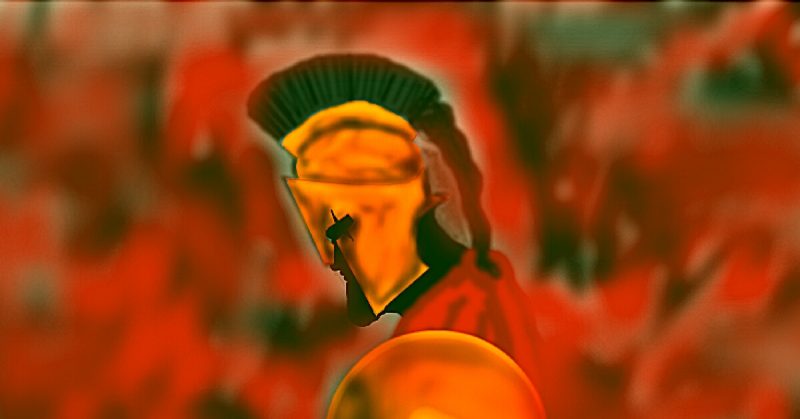Looking throughout history, before the end of the Medieval era, we can find five great last stands with ease. The heroism and self-sacrifice of the defenders are still well-known and admired.
Their bravery also had a huge significance for their time and had a great impact on the outcome of the certain conflicts. These stories also teach us a thing or two about the power of will.
5. The Famous 300 Spartans
We all know about the great achievement of the Spartans at Thermopylae in Central Greece. Their last stand during the Greek-Persian Wars (499-449) has been an inspiration for centuries.
At the beginning around several thousand elite Spartan warriors obstruct the passage to stop Xerxes’ advance. The Persian Shah’s Army counts as many as 70,000 soldiers.
The bravery of the remaining 300 Spartans at the end of the battle would live through the ages. So we could safely put them in the first position for their bravery and impact on the war. The battle was of great significance for the Greek-Persian Wars. It was also a proof of the strength of the Hellas phalanx.
The Persian army lost a huge number of men in this battle and was delayed decisively. Corinth was fortified, the Athenians moved to Salamis, the Persian navy defeated and so on. And a year later the Persians were routed at the Battle of Plataea.
4. The Last Jews of Masada Who Never Surrendered
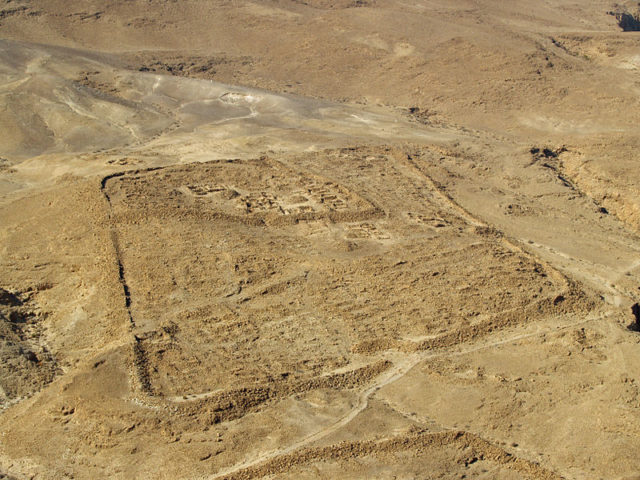
During the first Roman-Jewish war (66-73) the army of Lucius Flavius Silva fought the Zealots. The holy city of Jerusalem had been destroyed. A small force of Jewish people fortified themselves into the fortress of Masada, swearing they would not bow before the Roman conquerors, as long as they were alive.
Silva’s army is of 10,000 Roman warriors, while the Jews led by Eleazar Yair numbered 960. However, the defenders were not only warriors but their families as well. The siege of Masada continued for a year, after which the Zealots decided to keep their promise. The Jewish defenders ended their own lives, leaving stores.
The defenders suicide was to show the Romans, that under no circumstances would they bow before anyone.
3. The Berserker Who Did Not Let Anyone Pass
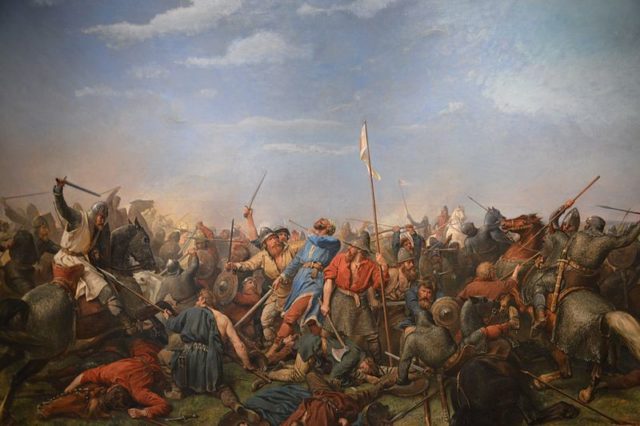
In 1066, during the Vikings invasions into English lands, another epic last stand remained in history. At Stamford Bridge, a 15,000 English army was up against roughly 9000 Vikings. The heroic stand, however, is not that of the Scandinavian warriors, but of a single one of them. The defeat the Vikings suffer is not heroic at all.
They were drunk, unprepared and somewhat weary from the weather. Only one nameless berserker all alone fortified at the bridge and took down more than 40 enemies, giving his fellow Vikings time to regroup. This one Viking was taken down after the Saxons sent a boat under the bridge and impaled him from underneath. Afterward, the English attacked and destroyed the entire Scandinavian force.
The Vikings might’ve lost, but the legend for that one Berserker still lives. And for his fierce and brave defense, we can bet he won his place in Valhalla.
2. “We Are Sorry, But We Do Not Speak French.”
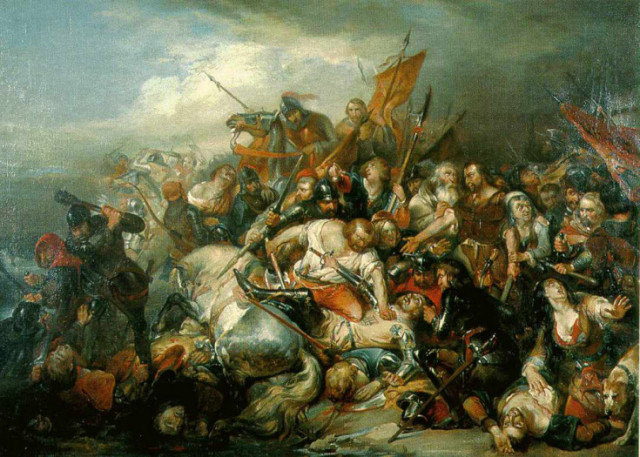
Battle of the Golden Spurs in 1302 was part of the Franco-Flemish wars. Near Kortjik, Flanders, some 8,000 French Knights were up against the 9000 ordinary people of the city militia. The French army was a well-equipped force of shiny knights. They had armored knights, esquires, crossbowmen, pikemen and everything else they need to rout the Flemish force.
The Flemish, on the other hand, were not even in a battle formation. They were armed with spears and maces. Thus, the French, confident in their own superiority attacked, but they were routed. The citizens, whom everyone considered unable to fight, simply destroyed the French army. All four of the French commanders were killed, and the famous army of Philip IV left with tucked tails. When Robert II, the Count of Artois, pleaded for mercy, the Flemish responded: “We are sorry, but we do not speak French.”
We can safely add this battle to the count. Simple citizens, albeit trained in the usage of weapons, to go against the glorious and seasoned French knights, and still win, is nothing short of heroic.
1. Strength Is Not Always In Numbers
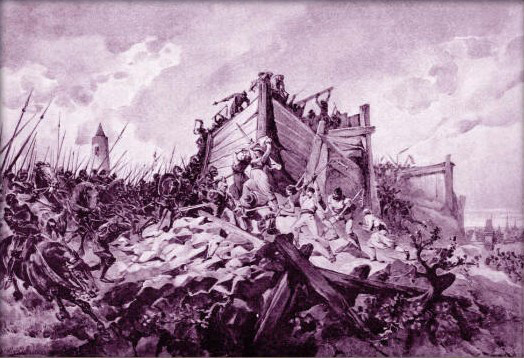
In 1420, near Prague, on top of a hill, some 80 Hussites would fight heroically against the 8000 knights and light cavalry from Hungary and Bohemia. The battle is shocking on accounts of numbers and outcome. Jan Zizka, together with 76 soldiers and archers, and three women will repel the thousands of knights. How did it come to this?
Well, Sigismund tried to take Prague so that he could push the Hussites away from the Bohemian capital. He gathered an army of 50,000 knights and infantry against a mere 12,000 who defended the city. On the roads to the city, there was a hill – Vitkov, where the defensive structure was no more than some nailed wooden planks, reinforced with stones and mud. That hill was of great significance for the defense of the city, and could decide the outcome of the entire siege. Zizka and his handful of defenders knew very well what was at stake.
Thus, they bravely fortified themselves behind the planks. Sigismund too knew the importance of that hill and decided to take no risk. He sent some 8000 of his men to take it over, believing they would be enough to route the defense. Nevertheless, the Knights charge met the fierce resistance of those mere 80 brave souls.
The defenders managed to withstand the charge of the knights for so long, that reinforcements of Hussites came and attacked the confused knights from behind. In no time the Knights were defeated and quickly retreated from the battlefield. In honor of the bravery of Zizkov and his party, the hill was renamed Zizkov.
That one battle repelled the army of Sigismund and won the Hussites a well-deserved victory.
